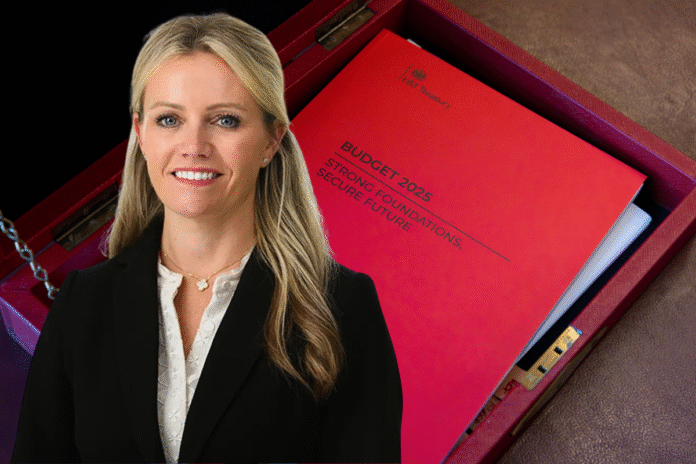Aldermore has called for an 18-month Stamp Duty holiday for buyers of new homes priced under £500,000, arguing the measure would help stimulate transactions, support first-time buyers and improve cash flow for SME housebuilders.
The appeal comes ahead of today’s Autumn Budget, as the lender warns that housing delivery continues to fall short of the Government’s long-stated target of 300,000 new homes a year.
The bank is also urging ministers to reinstate Help to Build, proposing a Government-backed equity contribution of 20% for new-build purchases where buyers provide a 5% deposit.
Aldermore argues that such a scheme would lower entry barriers for buyers while enabling smaller regional developers to bring forward new projects at a time when planning delays and high development costs are constraining output.
FIRST-TIME BUYER HELP
Findings from Aldermore’s First Time Buyer Index, a survey of 2,000 prospective first-time buyers, show strong support for renewed intervention.
More than two-thirds (68%) said the Government and mortgage industry need to be “more creative” with incentives, while 69% back the reintroduction of Help to Buy.
Over a third (35%) want increased support for affordable housing delivery, and 24% want Stamp Duty relief or higher thresholds.
PIVOTAL MOMENT
Aldermore said today’s Budget represents a pivotal moment for the Chancellor to address slowing supply and to provide greater certainty to SME developers, who it argues have been disproportionately affected by planning complexity and economic volatility.
Danielle Soto (main picture, inset), managing director for savings and business finance at Aldermore, said: “Today’s Budget is a critical juncture for the Chancellor to help unlock growth.
“Delivering more homes depends on simplifying the planning system and increasing infrastructure investment, but the house building sector – particularly SME developers – also needs certainty and targeted support to scale up delivery.
“While the Government has striven to reach its target of building 300,000 homes a year, the data on completed homes to date demonstrates this ambition is currently out of reach.”
CREATIVE SOLUTIONS
She added: “Therefore, we must search for more creative and far-reaching solutions. The housebuilding sector, and SME developers who find themselves disproportionately impacted by red tape and complexity in particular, requires more certainty in order to achieve this.
“First-time buyers are equally in need of greater support – more than two-thirds (68%) say the Government and mortgage industry must be more creative with incentives and nearly seven in 10 (69%) support reintroducing the Help to Buy scheme.
“Nearly a quarter (24%) want stamp duty relief or higher thresholds. That’s why we’re calling for an 18-month Stamp Duty holiday for buyers of new homes under £500,000 – to stimulate sales, support first-time buyers and help smaller developers maintain cash flow.”
HELP TO BUILD
And she said: “We’re also calling on the Government to reinstate Help to Build with a Government-backed equity contribution of 20% when buyers contribute 5%.
“This would enable smaller builders to re-enter the market and accelerate delivery of new homes, especially in regional areas where major housebuilders are less active.
“While there is no single solution, these measures would provide meaningful help to both SME housebuilders and first-time buyers.”
COLOSSAL MISSED OPPORTUNITY

Meanwhile Damien Druce, COO of Black & White Bridging, offered a contrasting view on the broader fiscal strategy, warning that the Budget risks becoming a “missed opportunity”.
He argued that welfare reform should have been prioritised to curb spending and reduce pressure on tax policy, including property taxation.
Druce said: “I think the Budget is going to be a colossal, missed opportunity. We need reform of our welfare system and its ballooning bill. The welfare state was intended to be a safety net for people who found themselves in difficulties – or to provide help for those unable to work because of disability.”
HARD WORK, NOT HAND-OUTS
And he added: “I was brought up in poverty on a council estate. All of my life I’ve strived for more based on hard work, not hand-outs. I think the idea that living on benefits might become a way of life for generations of workless people would have been anathema to William Beveridge, the architect of the welfare state.
“But rather than reforming welfare entitlements and cutting the country’s spending, Ms. Reeves is set to scrap the two-child benefit cap, costing the country an additional £3bn.
“Reeves should have been looking to reduce welfare spending – saving billions.”
“Labour MPs have already scuppered an earlier attempt to reform Personal Independence Payments.
“Given the Chancellor wants to cut debt, that means the country needs to raise more via taxes – and without an increase in income tax, that will mean raising more money from property.
“Instead, Ms Reeves should have been looking to reduce welfare spending – saving billions, keeping taxes down and boosting growth. Sadly, that would require vision, political will and leadership. Which is something that Ms Reeves does not appear to possess.”
Main pic credit: HM Government / Kirsty O’Connor



